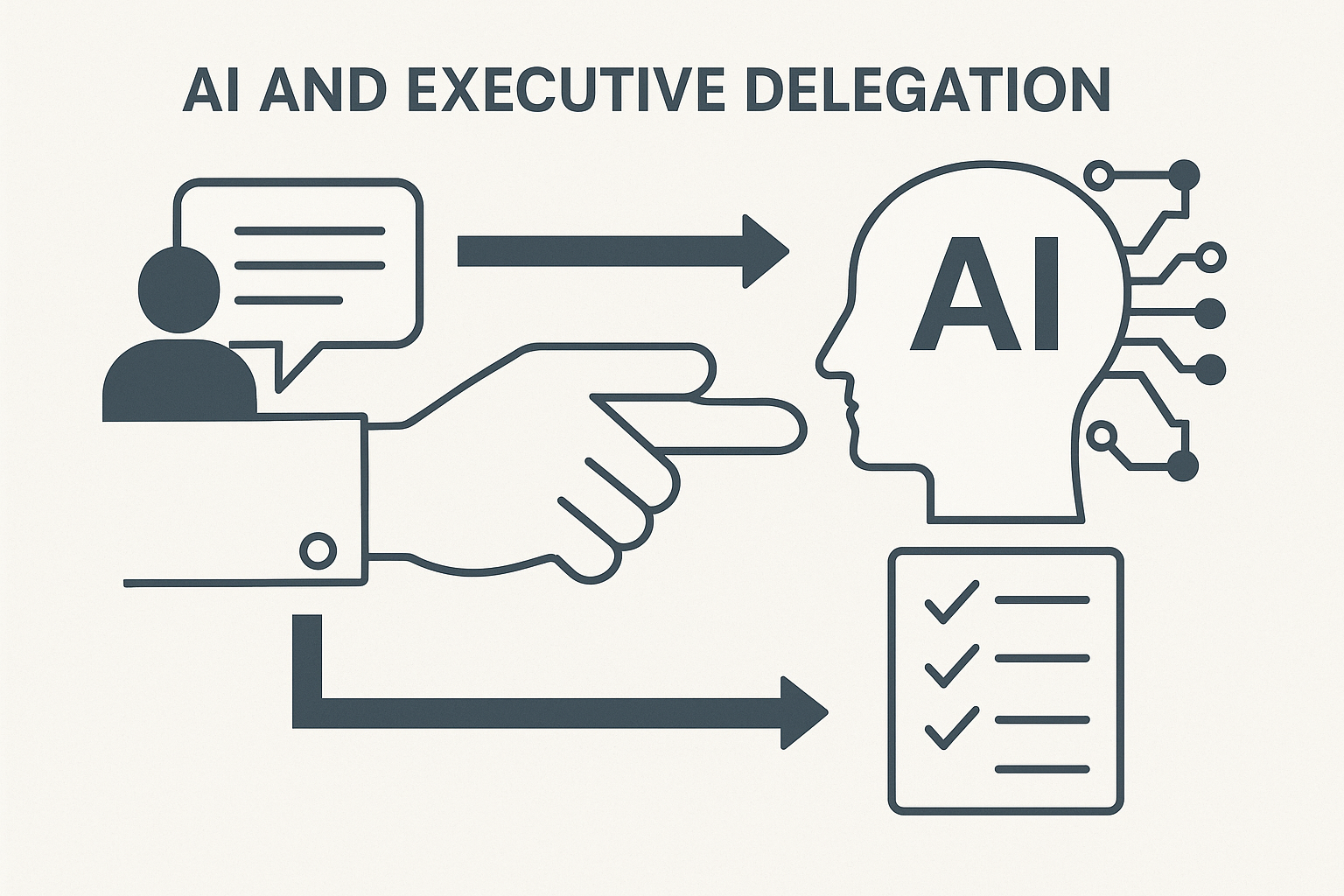AI is a Surprising Tool for Sharpening Delegation Skills
AI and executive delegation are converging in surprising ways. Delegation is a cornerstone of effective leadership. But for something so essential, it’s surprisingly easy to get wrong – especially at the executive level, where complexity, speed, and ambiguity are part of the job.
Done well, delegation builds capability, strengthens trust, and drives results. Done poorly, it creates confusion, rework, and risk. And the line between the two often comes down to one thing: communication.
As AI tools become more embedded in leadership workflows, they’re offering an unexpected benefit – a powerful mirror to help leaders get better at delegation. Here’s how.
The Hidden Demands of Effective Delegation
Most CEOs and CHROs would agree that delegation is more than just handing off tasks. At its best, delegation requires:
- Setting the right context – framing the assignment within the broader business picture so the delegatee understands why it matters
- Clear communication – providing detailed direction, while leaving space for ownership
- Mutual understanding – confirming that both parties are aligned, often by asking clarifying questions
- Thoughtful review – taking time to understand how the other person plans to approach the task before fully handing it over
It takes discipline to do this well, especially in a fast-paced environment. That’s where AI can be a surprisingly effective training ground.
What AI Reveals About How You Delegate
Generative AI tools like ChatGPT are often positioned as “efficiency engines.” But their structure actually rewards clarity of input and penalizes vagueness.
Why? Unlike a human colleague, AI can’t infer what you meant. Tone goes unread. Context isn’t interpreted. It simply follows the instructions you give it, literally and without judgment.
When AI misfires, it’s often not because the tool is flawed. It’s because the prompt was unclear. That creates a unique feedback loop: you see the results of your delegation – typed in front of you – and you’re forced to ask, “What did I say that led to this?” That’s the hidden power of AI and executive delegation – it exposes gaps in clarity that would otherwise go unnoticed.
Practicing Context, Clarity, and Calibration
Let’s say you ask an AI tool to summarize a report. You expect a crisp executive summary, but instead get a generic list of bullet points. That’s a prompt problem – not an AI problem.
To fix it, you have to slow down. That means rephrasing. It involves setting context. You also describe your intended audience and clarify what “executive summary” means in your world.
In that moment, you’re practicing the same communication skills that make for excellent delegation with your team:
- Providing context
- Being explicit about expectations
- Thinking through how your words will be interpreted
- Iterating based on what you get back
In short, you’re training yourself to delegate better – because you’re being held accountable by a machine that only listens literally.
Don’t Just Throw Commands Over the Wall
Many leaders treat AI like an intern you can bark orders at. But that mindset creates bad habits – both with machines and with people. To use AI well, you have to engage with it intentionally.
The best AI users don’t just fire off commands. Instead, they think through the task and provide context. They make sure the output is understood. When needed, they revise based on the response. It’s a conversation, not a vending machine.
That mindset shift carries over to human delegation too. The more deliberate you are with AI, the more deliberate you’ll likely become with your team.

What This Means for Executive Leaders
For CEOs and CHROs, the implications are real:
- AI can be a delegation gym – a place to strengthen the muscles of context-setting, clarity, and communication
- AI’s transparency makes it a mirror – you see instantly how your instructions land, with none of the interpersonal buffers that might obscure feedback
- Working well with AI can raise your game as a delegator – which in turn builds stronger, more capable teams
Used thoughtfully, AI doesn’t just help you get more done. It helps you lead better. If you’re exploring how to lead more effectively in an AI-enabled world, KSE offers executive coaching and leadership development to support that journey.


Comments are closed for this article!